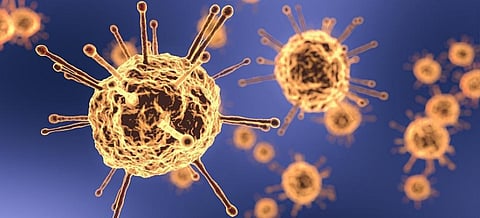

The Africa Center for Disease Control and Prevention (CDC) has strongly discouraged the imposition of a travel ban for people originating from countries that have reported the new variant of the SARS-CoV-2 virus that causes COVID-19.
The variant has been termed lineage B.1.1.529 by South Africa’s National Institute of Communicable Diseases (NICD).
The United Kingdom November 26, 2021 suspended all flights not just from South Africa but from five other African countries Namibia, Zimbabwe, Botswana, Lesotho and Eswatini.
UK’s decision to temporarily ban South Africans from entering the nation comes before any advice from the World Health Organization (WHO) on the next steps, the government of South Africa noted in its statement November 26.
Naledi Pandor, Minister of International Relations and Cooperation, South Africa:
Our immediate concern is the damage that this decision will cause to the tourism industries and businesses of both countries.
South Africa will take up the matter with the UK government and persuade them to reconsider this decision, according to media reports.
Gauteng in South Africa recorded a sudden spike in confirmed cases of people infected with COVID-19. The number of active cases in Gauteng increased by around 141 per cent since November 21, 2021.
Of the 18,768 active cases in the country as of November 25, 2021, 34 per cent have been recorded in Gauteng province, according to government update.
|
Date |
No of active cases |
Active cases in Gauteng (per cent of total active cases) |
|
21-Nov-21 |
19,147 |
13.79 |
|
22-Nov-21 |
19,109 |
14.38 |
|
23-Nov-21 |
20,601 |
17.30 |
|
24-Nov-21 |
20,610 |
21.69 |
|
25-Nov-21 |
18,768 |
33.86 |
There may be a link between this spike and the new variant, according to experts.
As many as 77 cases of infections of the new variant were confirmed as of November 25. It is now being closely monitored by the health authorities in South Africa.
The new variant has been detected in Botswana (four cases), Hong Kong (one case) and Israel (one case) as well.
The European Union has also proposed a ban on travel from southern Africa.
In India, the National Centre for Disease Control has also taken note of the emergence of the new variant. States will have to send samples from COVID-19 patients travelling from South Africa, Botswana and Hong Kong to designated labs of the Indian SARS-CoV-2 Genomics Sequencing Consortium (INSACOG). The consortium tracks and monitors the emergence and transmission of variants of concern and variants of interest in India.
The new variant displays multiple mutations across the virus genome, according to the NICD statement. This includes more than 30 mutations affecting the spike protein responsible for the entry of the virus into host cells.
A few of these mutations were detected in alpha and delta variants as well. These have been linked to increased transmissibility and immune evasion.
Most of the mutations, however, are yet to be characterised and have not been identified in the variants in circulation. Thus, the new variant is very different from the earlier variants.
Further studies are being conducted to determine “the ability of the virus to transmit” and to assess the probabilities of mutations, resulting in greatly reduced vaccine efficacy.
There are also ongoing studies on the ability of the new variant to cause more severe or milder disease.
Way ahead
Africa CDC strongly recommended the implementation of public health and social measures, which include mask wearing, physical distancing and hand washing.
These will be very crucial to limit the transmission of COVID-19 regardless of the emergence of new variants.
“Individual compliance to preventative measures can have a great collective impact in limiting the spread of the new variant,” said Dr Michelle Groome, head of the division of Public Health Surveillance and Response.
Africa CDC suggested speeding up immunisation of populations, with priority to high-risk groups ahead of new waves of COVID-19 infections.
In the meantime, WHO has called for a special meeting on November 26 to discuss the new Sars=CoV-2 variant.